Terra Batida in residency at Espaço Alkantara
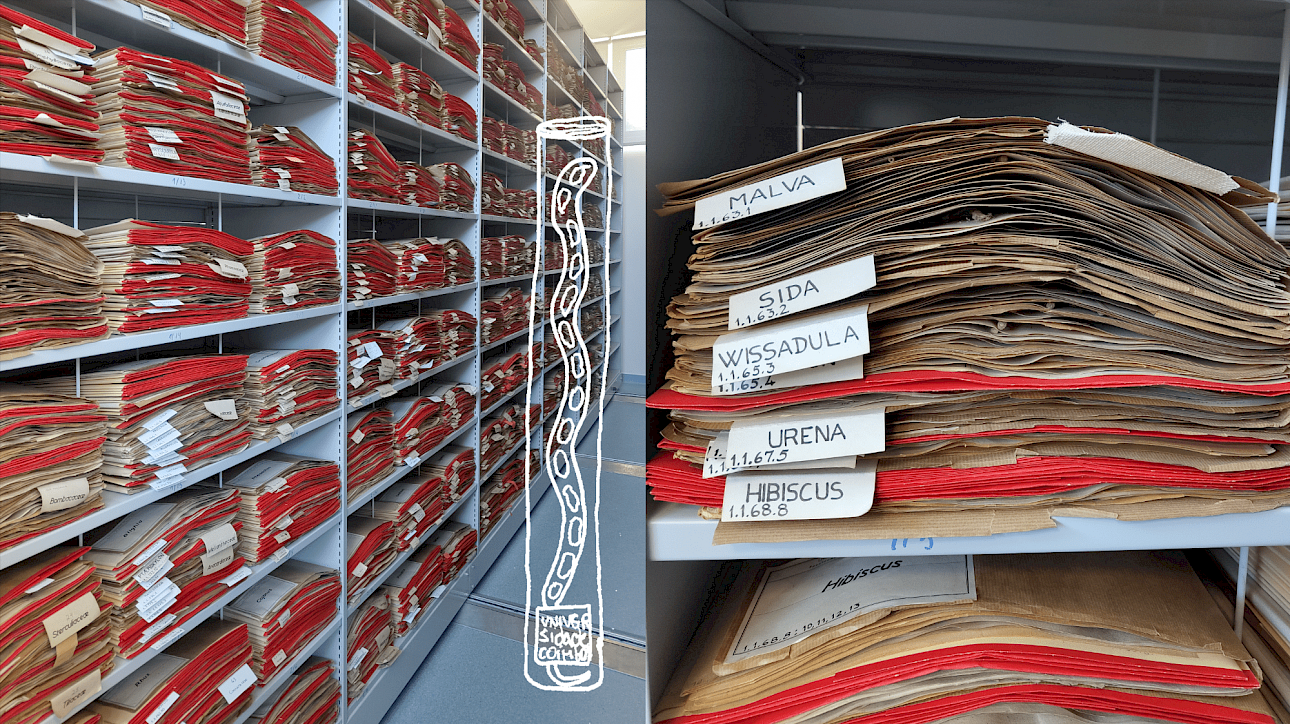
- 02.06 — 08.06 2025
Terra Batida is a platform for collective study and creation dedicated to the intersections between the performing arts and ecology. In 2024–25, its residency and research programme focuses on contemporary Indigenous thought and the historical relationships between Portugal and Brazil, with particular attention to institutional policies of disappearance, conservation, and memory that shape and connect both countries.
Between 26 May and 8 June, a phase of residencies and gatherings will take place, welcoming artists Olinda Tupinambá, Lilly Baniwa, and Ziel Karapotó, in dialogue with the museum collections of the National Museum of Ethnology, the National Museum of Natural History and Science, the Science Museum of the University of Coimbra, the Torre do Tombo Archives, among others.
On 31 May at 6pm, at Espaço Parasita, there will be a public talk — an opening moment in the residency process and a chance to share first impressions — with Lilly Baniwa, Olinda Tupinambá, and Ziel Karapotó, guest residents for this first phase. The artistic residency will take place at Espaço Alkantara from 2 to 8 June.
Terra Batida is a network of people, practices, and knowledges in confrontation with forms of ecological violence and policies of abandonment. It has been coordinated by Ritó Natálio since 2020. Each year, artistic residency programmes are organised to bring together artists, scientists, and activists around the observation and engagement with socio-environmental conflicts. From these programmes emerge research processes and artistic proposals that are shared publicly through conversations, performances, experiences, texts, walks, and more. With a methodology that weaves together research-based art, community co-creation, and public dialogue, Terra Batida fosters local engagement and the mapping of ecological struggles, cultivating sensitivities and alternative political imaginaries that address both human rights and the rights of nature.
Credits
A programme by Terra Batida With Olinda Yawar Tupinambá, Ziel Karapotó, Lilly Baniwa Curatorial research (2024) Ellen Pirá Wassu e Ritó Natálio Dialogues António Gouveia, Associação Batoto Yetu Portugal, Carla Coimbra, Karen Shiratori, Museu Nacional de Etnologia, Museu Nacional de História Natural e da Ciência, Museu da Ciência da Universidade de Coimbra, Torre do Tombo Documentation support Ian Capillé, Violena Ampudia Coordenation Ritó Natálio Executive Production Laila Algaves Nuñez / Associação Parasita Administration Lysandra Domingues / Associação Parasita Co-production Alkantara Festival, Galerias Municipais / EGEAC Support and partnerships ECO - Animais e Plantas em Produções Culturais sobre a Bacia Amazónica, EDGES – Entangling Indigenous Knowledges in Universities
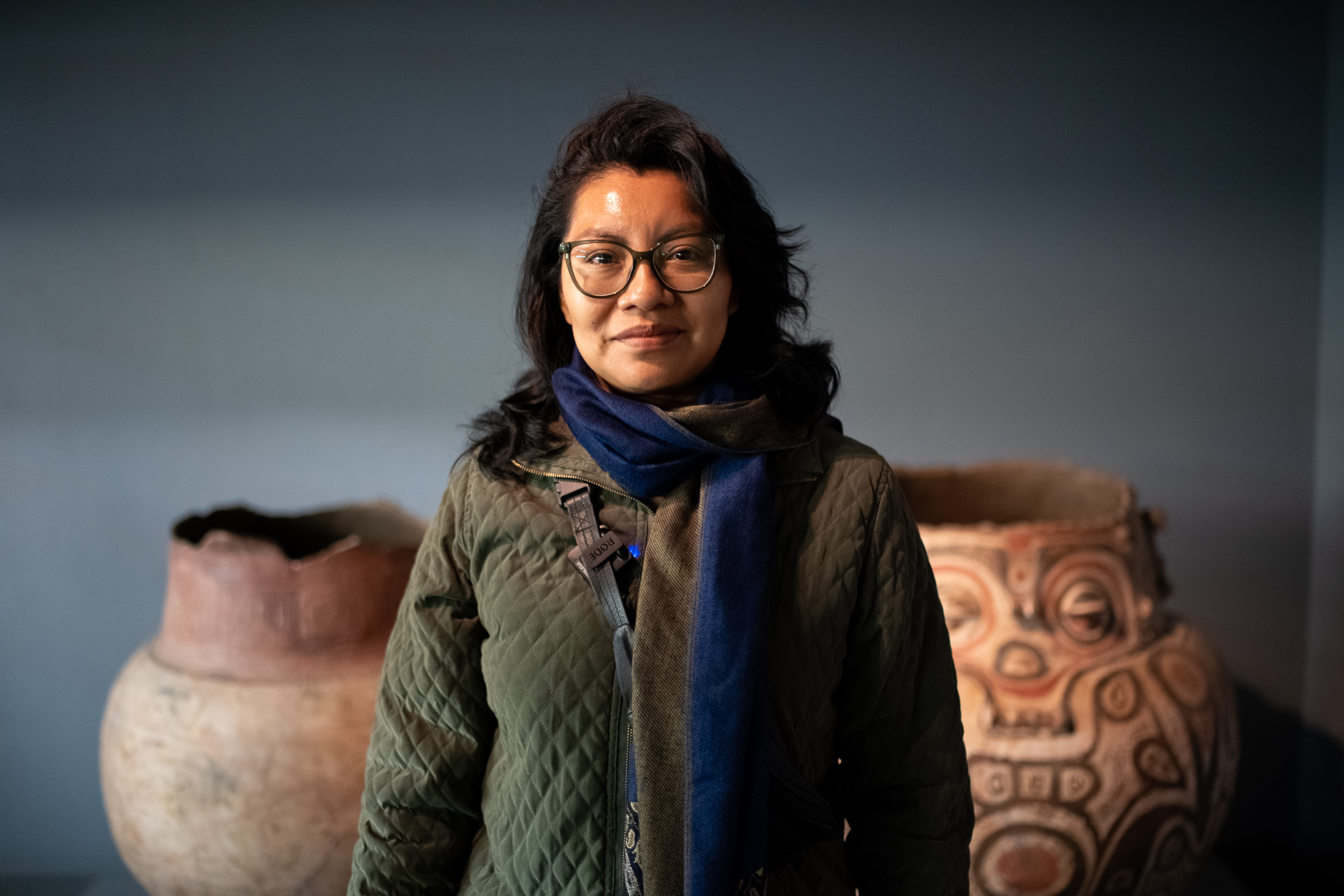
Lilly Baniwa is an indigenous actress, performer and researcher in Performing Arts at the State University of Campinas/UNICAMP. Her latest projects include the video performance manifesto Lithipokoroda, as a director, and the Identity Performativities Workshop, both of which were funded by the Aldir Blanc/Amazonas Law and developed in the municipality of São Gabriel da Cachoeira. As an actress-creator, she has also directed the film-performance WHAA - Nós, entre ela e eu (2022) and the performance Antes do tempo existir (Before Time Exists).
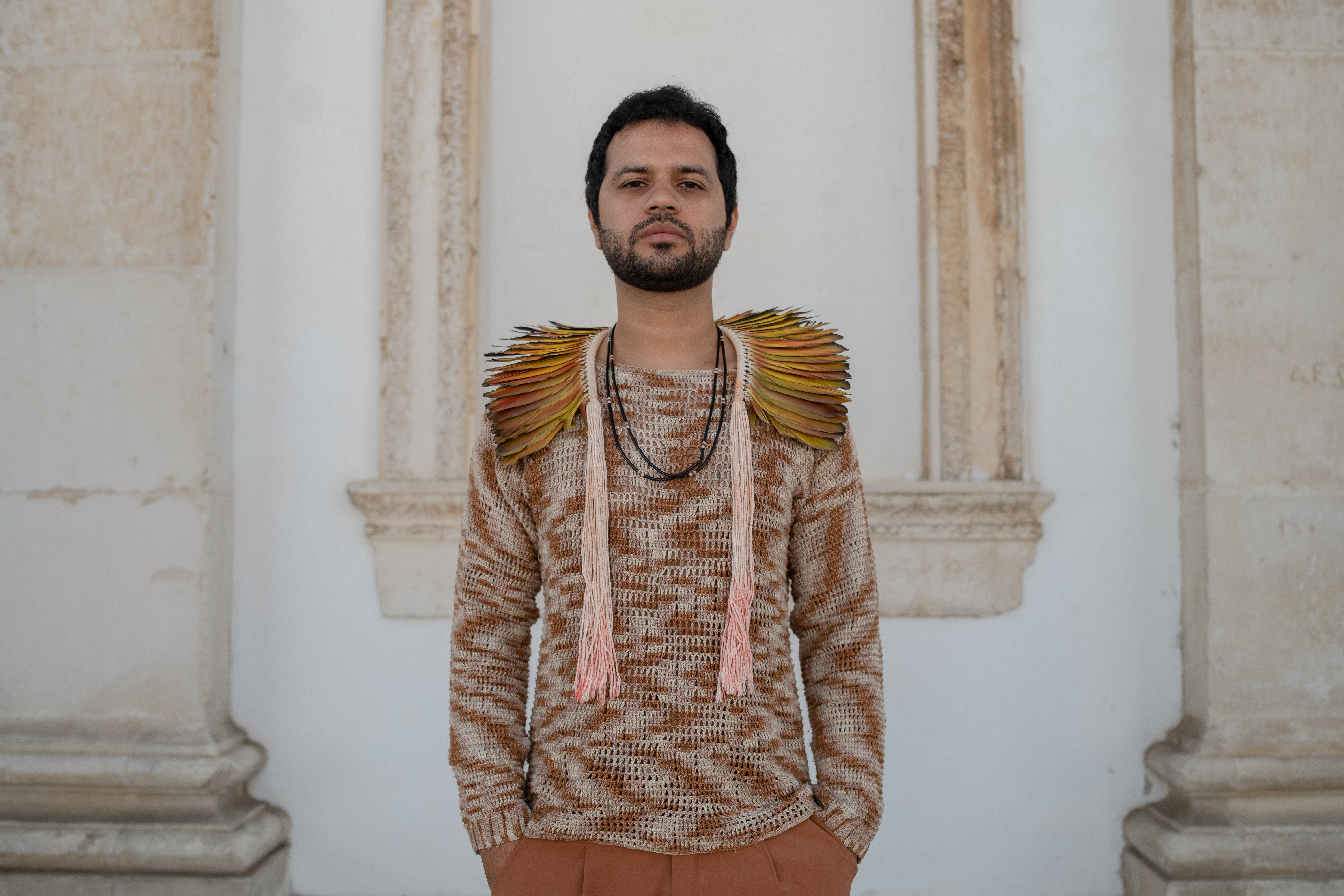
Ziel Karapotó is an indigenous Karapotó from the Terra Nova community. He has been working since 2012 in the fields of visual arts, performance, installation, curating, art education and audiovisuals. He has a degree in Visual Arts from the Federal University of Pernambuco - UFPE and is a visiting researcher at IHAC/UFBA. In his research, he addresses indigenous poetics, identity configurations and racism in relation to original ethnicities, especially indigenous peoples in the Northeast. She believes in the art and science of her ancestors and their body-spirit as a...
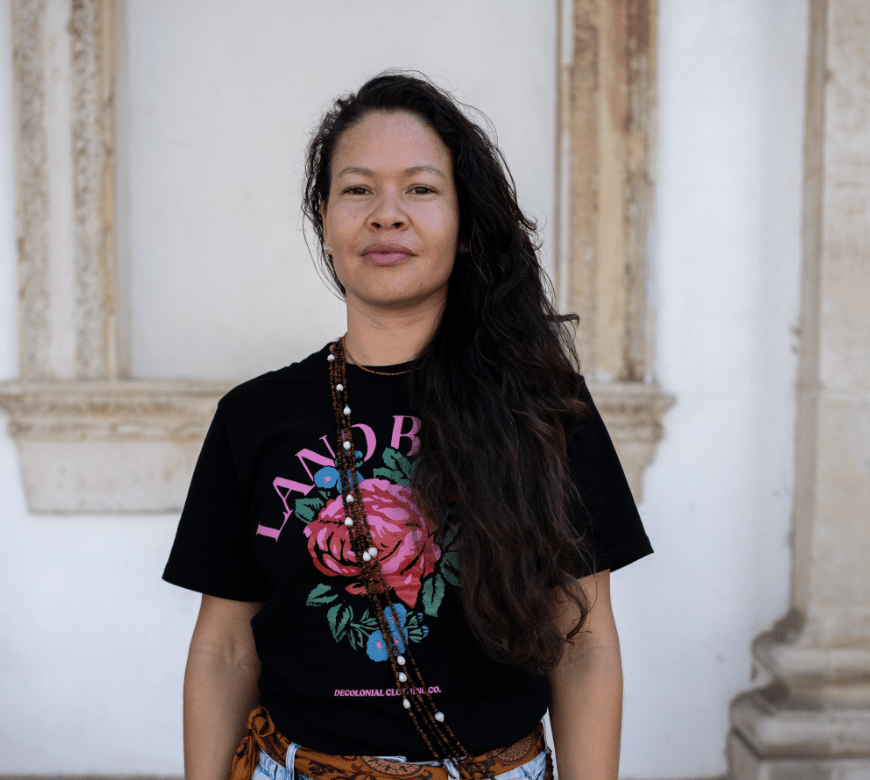
Olinda Tupinambá is an indigenous person from the Tupinambá and Pataxó Hãhãhãe peoples, journalist, curator, performance artist, filmmaker and environmental activist. The aesthetic and political artivism of Olinda's work breaks with the stereotypes and racism that hang over indigenous peoples. Her work occupies the screen to echo the voices of ancestry, which denounce oppression and demarcate the existence of indigenous peoples. Olinda shows that indigenous people are contemporary, living in the present, seeking references in the indigenous past to re-signify and...
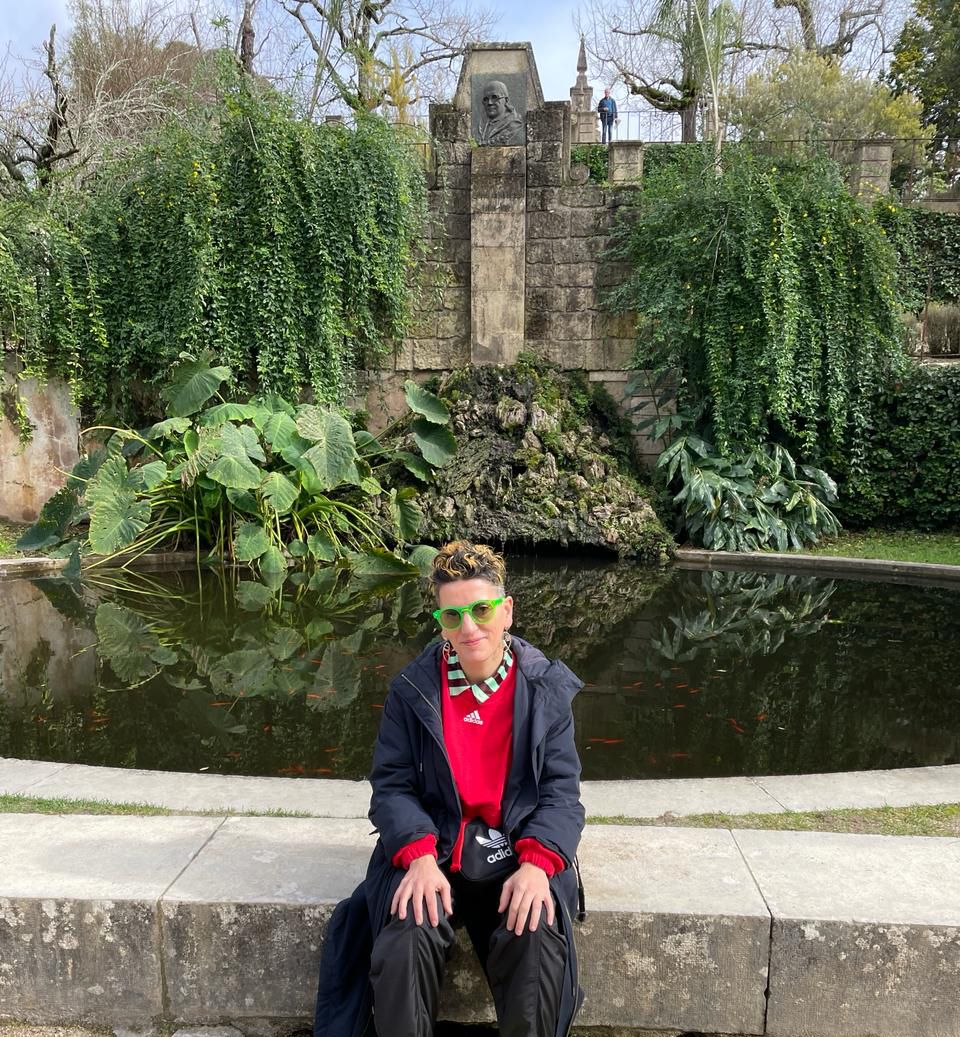
Artist and researcher. His practice spans essayistic writing and performance, encompassing creation, teaching, research, and the curation of public programmes. He has organised a series of lecture-performances exploring the relationship between language and geology, presented internationally across art spaces, theatres, and academic contexts: Antropocenas (2017) with João dos Santos Martins, Geofagia (2018), and Fóssil (2020). One of his most recent works — Spillovers (2023) — proposes a fabulated, collective reinterpretation of Lesbian Peoples: Material for a...